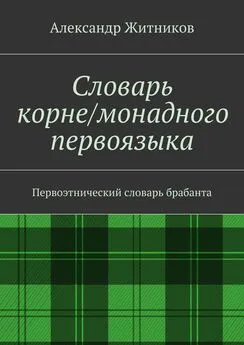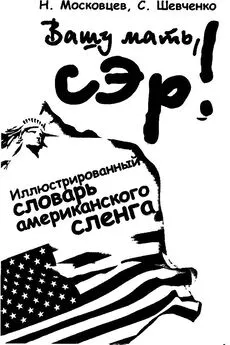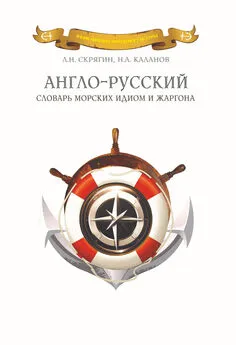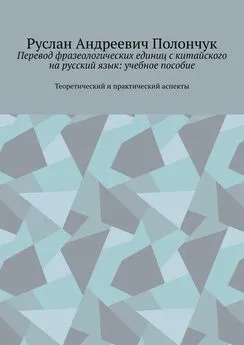Adam Makkai - Словарь американских идиом: 8000 единиц
- Название:Словарь американских идиом: 8000 единиц
- Автор:
- Жанр:
- Издательство:неизвестно
- Год:неизвестен
- ISBN:нет данных
- Рейтинг:
- Избранное:Добавить в избранное
-
Отзывы:
-
Ваша оценка:
Adam Makkai - Словарь американских идиом: 8000 единиц краткое содержание
Это обновленное и дополненное издание, содержащее более 8000 идиоматических
слов и выражений, причем каждое из которых снабжено грамматическим объяснением
и практическим примером. Словарь содержит лексемные идиомы, фразеологические
единицы и поговорки, имеющие особенное значение. В нем приведены наиболее
употребительные выражения только американского английского языка. Этот словарь — идеальное пособие для студентов, часто разъезжающих бизнесменов и просто
путешественников.
Словарь американских идиом: 8000 единиц - читать онлайн бесплатно полную версию (весь текст целиком)
Интервал:
Закладка:
[make a clown of]See: MAKE A FOOL OF.
[make a day of it] {v. phr.} , {informal} To do something all day. •/ When they go to the beach they take a picnic lunch and make a day of it. / Compare: MAKE A NIGHT OF.
[make a dent in] {v. phr.} , {informal} To make less by a very small amount; reduce slightly. — Usually used in the negative or with such qualifying words as "hardly" or "barely". •/ John shoveled and shoveled, but he didn’t seem to make a dent in the pile of sand. / •/ Mary studied all afternoon and only made a dent in her homework. /
[make a difference]or [make the difference] {v. phr.} To change the nature of something or a situation; be important; matter. •/ John’s good score on the test made the difference between his passing or failing the course. / •/ It doesn’t make a bit of difference if you are late to my party. I just want you to come. /
[make a face] {v. phr.} , {informal} To twist your face; make an ugly expression on your face (as by sticking out your tongue). •/ The boy made a face at his teacher when she turned her back. / •/ The sick boy swallowed the medicine and made a face. /
[make a fast buck]See: FAST BUCK.
[make a federal case out of]See: MAKE A BIG DEAL ABOUT, MAKE A MOUNTAIN OUT OF A MOLEHILL.
[make a fool of]or (informal) [make a monkey of] {v. phr.} To make (someone) look foolish. •/ The boy made a fool of himself. / •/ Mary’s classmates made a fool of her by telling her the party was to be a masquerade. /
[make after] {v. phr.} To chase something; run after something. •/ The mouse escaped from the kitchen corner and the cat made after it. /
[make a fuss over] {v. phr.} 1. To quarrel about something or someone. •/ I want you kids to stop fussing about who gets the drumstick. / 2. To he excessively concerned about someone or something; worry. •/ Let’s not fuss over such an insignificant problem! / 3. To show exaggerated care or preoccupation about a person or an animal. •/ Aunt Hermione is constantly fussing over her old lapdog. /
[make a go of] {v. phr.} To turn into a success. •/ He is both energetic and highly skilled at trading; he is sure to make a go of any business that holds his interest. /
[make a hit] {v. phr.} , {informal} To be successful; be well-liked; get along well. •/ Mary’s new red dress made a hit at the party. / •/ Alice was so happy that her boyfriend made a hit with her parents. / Compare: GO OVER(6).
[make a killing] {v. phr.} To earn or suddenly win a very large sum of money. •/ Herb bought a lot of soybean stock when the price was low and sold it when the price went up. Small wonder he made a huge killing. /
[make a living] {v. phr.} To earn one’s livelihood. •/ If you’re good at your job, you can make a better living than if you don’t know what you’re doing. / •/ It is easier to make a living in the United States than in many other countries. /
[make allowance] {v. phr.} To judge results by the circumstances. — Often used in plural. •/ When a small boy is helping you, you must make allowances for his age. /
[make a long story short] {v. phr.} To summarize a lengthy narrative. •/ "So, to make a long story short," he said, "I made a killing on the stock market." / Compare: IN A NUTSHELL.
[make a match] {v. phr.} To bring a man and woman together for the purpose of an engagement or marriage. •/ Sheila’s aunt is anxious to make a match between her and an attractive, wealthy man. /
[make a mess of]See: SCREW UP.
[make a monkey of]See: MAKE A FOOL OF.
[make a motion] {v. phr.} To propose in some committee meeting or legislative group that a certain action be taken. •/ The secretary made a motion that the minutes of the last meeting be accepted. /
[make a mountain out of a molehill]To think a small problem is a big one; try to make something unimportant seem important. •/ You’re not hurt badly, Johnny. Stop trying to make a mountain out of a molehill with crying. / •/ Sarah laughed at a mistake Betty made in class, and Betty won’t speak to her; Betty is making a mountain out of a molehill. /
[make a move] {v. phr.} 1. To budge; change places. •/ "If you make a move," the masked gangster said, "I’ll start shooting." / 2. To go home after dinner or a party. •/ "I guess it’s time to make a move," Roy said at the end of the party. /
[make a name for oneself] {v. phr.} To become recognized in a field of endeavor; become a celebrity. •/ Joe has worked so hard at soybean trading that he made quite a name for himself as a trader. / •/ Bill has made a name for himself both as a pianist and as a composer. /
[make an appearance]See: PUT IN AN APPEARANCE.
[make an end of] {v. phr.} To make (something) end; put a stop to; stop. •/ To make an end of rumors that the house was haunted, a reporter spent the night there. /
[make an example of] {v. phr.} To punish (someone) publicly to show what happens when someone does wrong. •/ The teacher made an example of the boy who copied from another student during a test. / •/ The Pilgrims made an example of a thief by putting him in the stocks. /
[make an exhibition of oneself] {v. phr.} To behave foolishly or embarrassingly in public. •/ Stop drinking so much and making an exhibition of yourself. /
[make a night of it] {v. phr.} , {informal} To spend the whole night at an activity. •/ The dog found the door unlatched and made a night of it. / •/ The boys and girls at the dance made a night of it. / Compare: MAKE A DAY OF IT.
[make a nuisance of oneself] {v. phr.} To constantly bother others. •/ The screaming kids made a nuisance of themselves around the swimming pool. /
[make a pass at] {v. phr.} , {slang} , {informal} Make advances toward a member of the opposite sex (usually man to a woman) with the goal of seducing the person. •/ We’ve been dating for four weeks but Joe has never even made a pass at me. /
[make a pig of oneself] {v. phr.} , {informal} To overindulge; eat too much. •/ Mary said, "This dessert is so delicious that I am going to make a pig of myself and have some more." /
[make a play for] {v. phr.} , {slang} To try to get the interest or liking of; flirt with; attract. •/ Bob made a play for the pretty new girl. / •/ John made a play for the other boys' votes for class president. /
[make a point] {v. phr.} To try hard; make a special effort. — Used with "of" and a verbal noun. •/ He made a point of remembering to get his glasses fixed. / •/ He made a point of thanking his hostess before he left the party. /
[make a practice of] {v. phr.} To make a habit of; do regularly. •/ Make a practice of being on time for work. /
[make a quick buck]See: FAST BUCK.
[make a racket] {v. phr.} To cause a lot of noisy disturbance. •/ I wish the kids playing in the street wouldn’t make such a racket while I’m trying to take a nap. /
[make a scene] {v. phr.} To act hysterically; attract unfavorable attention. •/ I didn’t want Kate to make a scene in front of all of those people, so I gave her the money she wanted. /
[make a splash] {v. phr.} To cause a sensation. •/ The brilliant young pianist, barely 14 years old, made quite a splash on the concert circuit. /
[make a stab at] {v. phr.} To try doing something at random without sufficient preparation. •/ The singer was not familiar with the aria but she decided to make a stab at it anyhow. / Contrast: STAB IN THE BACK, STAB IN THE DARK.
[make a stand] {v. phr.} 1. To take a firm position on an issue. •/ He keeps talking about politics hut he never makes a stand for what he believes in. / 2. To take up a defensive position against the enemy. •/ The retreating troops decided to make a stand by the river. / Contrast: LAST DITCH, LAST STAND.
[make a stir]See: MAKE A SCENE.
[make a touch] {v. phr.} To borrow money; try to borrow money. •/ He is known to make a touch whenever he is hard up for cash. /
[make a virtue of necessity] {v. phr.} Make the best of things as they are; do cheerfully what you do. •/ After Mr. Wilson lost all his money, he made a virtue of necessity and found a new and interesting life as a teacher. / Compare: MAKE THE BEST OF.
[make away with] {v.} , {informal} Take; carry away; cause to disappear. •/ The lumberjack made away with a great stack of pancakes. / •/ Two masked men held up the clerk and made away with the payroll. / Compare: MAKE OFF.
[make-believe] {n.} False; untrue; created by illusion. •/ The creatures of Star Wars are all make-believe. /
[make believe] {v.} To act as if something is true while one knows it is not; pretend. •/ Let’s make believe we have a million dollars. / •/ Danny made believe he didn’t hear his mother calling. /
[make book] {v. phr.} To serve as a bookmaker taking bets on the horse races. •/ The police were out to prosecute anybody who made book illegally. /
[make both ends meet]See: MAKE ENDS MEET.
[make bricks without straw] {v. phr.} To make something without the wherewithal; do something the hard way; do a job under hard conditions. •/ John could not go to a library, and writing the report was a job of making bricks without straw. / •/ It was making bricks without straw to put on plays in that old barn. /
[make conversation] {v. phr.} To talk with someone just so that there will be talk. •/ John made conversation with the stranger so that he would not feel left out. / •/ Mary didn’t really mean what she said about Joan. She was only making conversation. /
[make do] {v. phr.} To use a poor substitute when one does not have the right thing. •/ John did not have a hammer, and he had to make do with a heavy rock. / •/ This motel isn’t what we wanted, but we must make do. / •/ Many families manage to make do on very little income. / Compare: GET ALONG.
Читать дальшеИнтервал:
Закладка:







